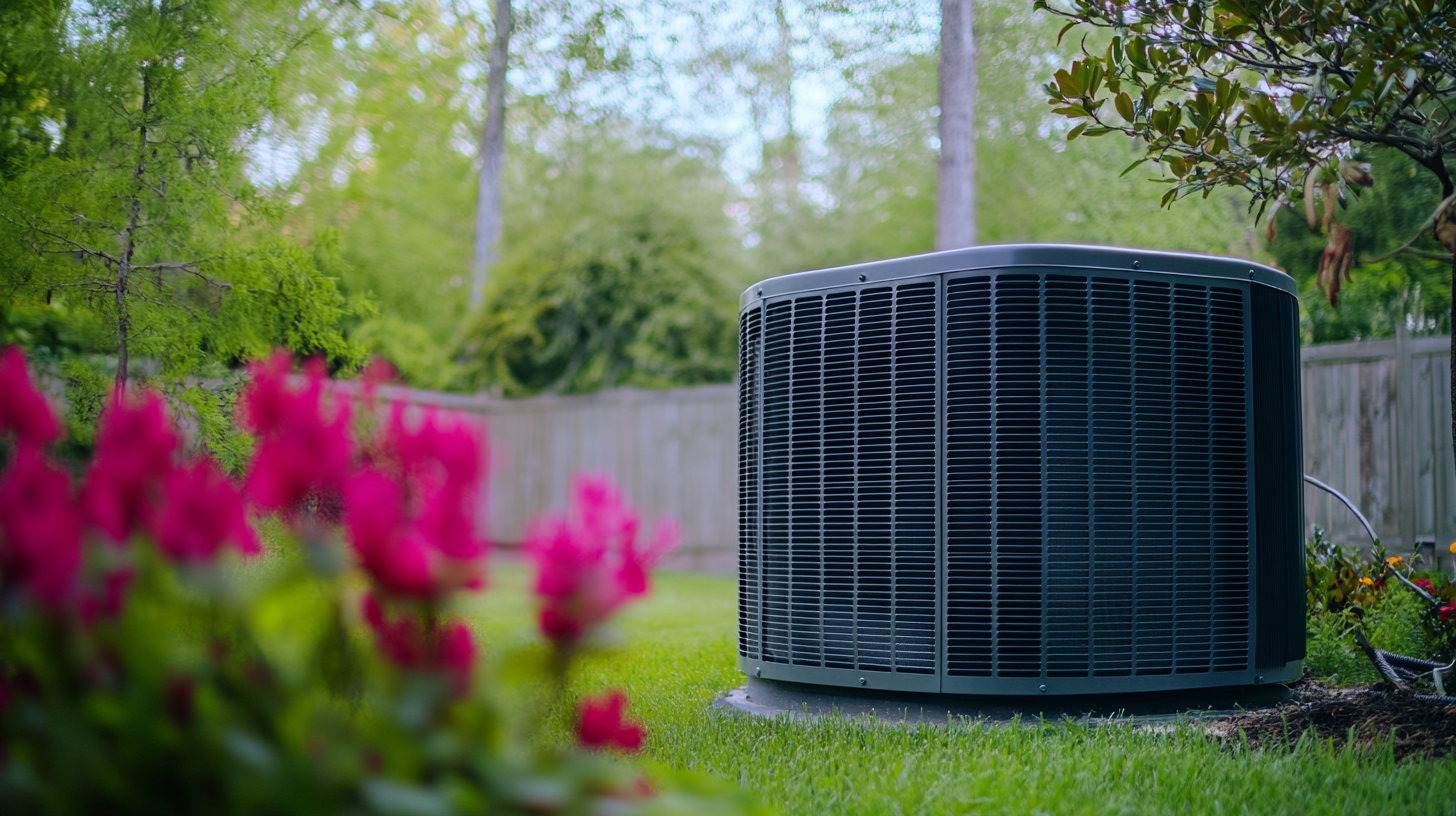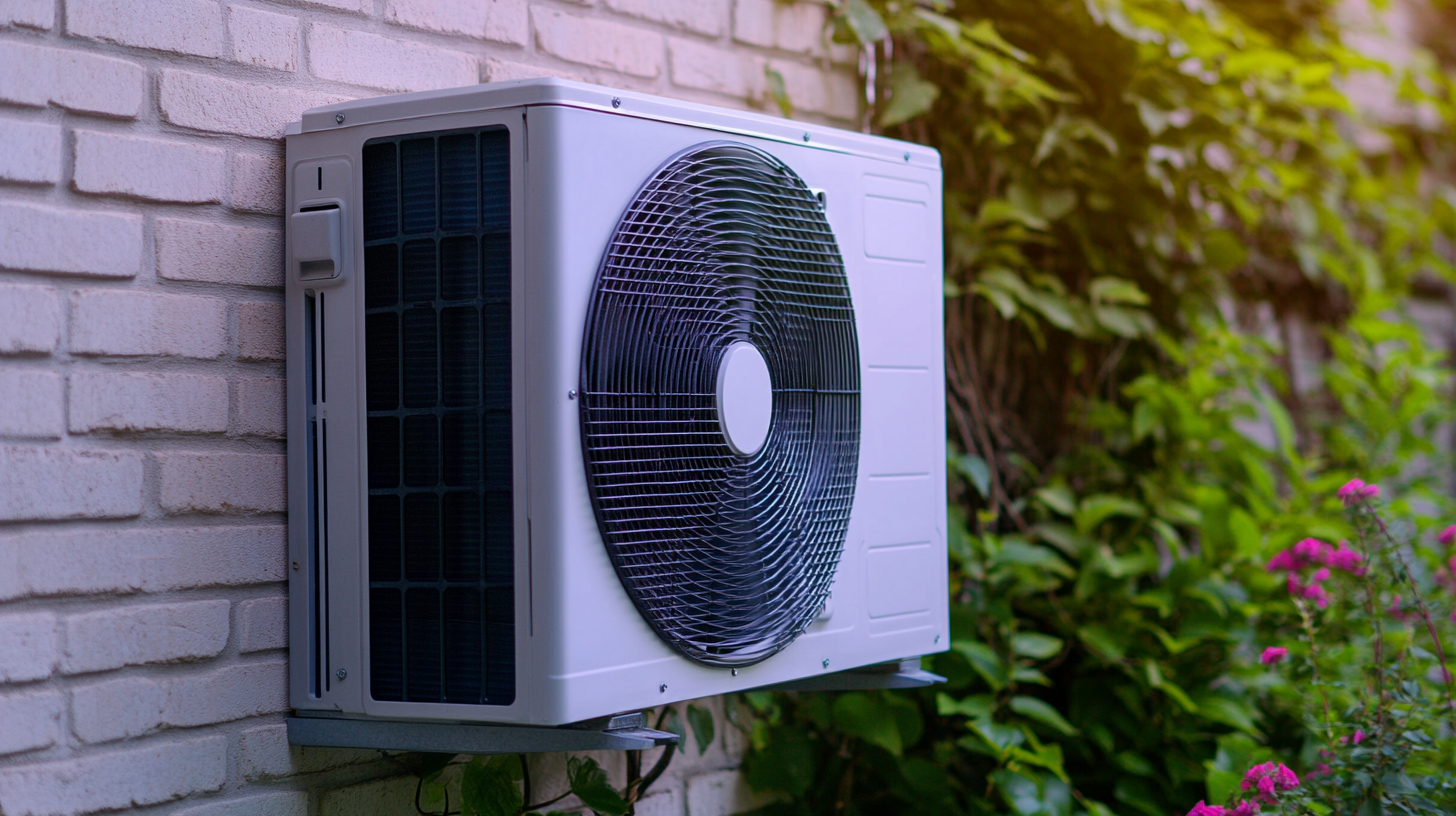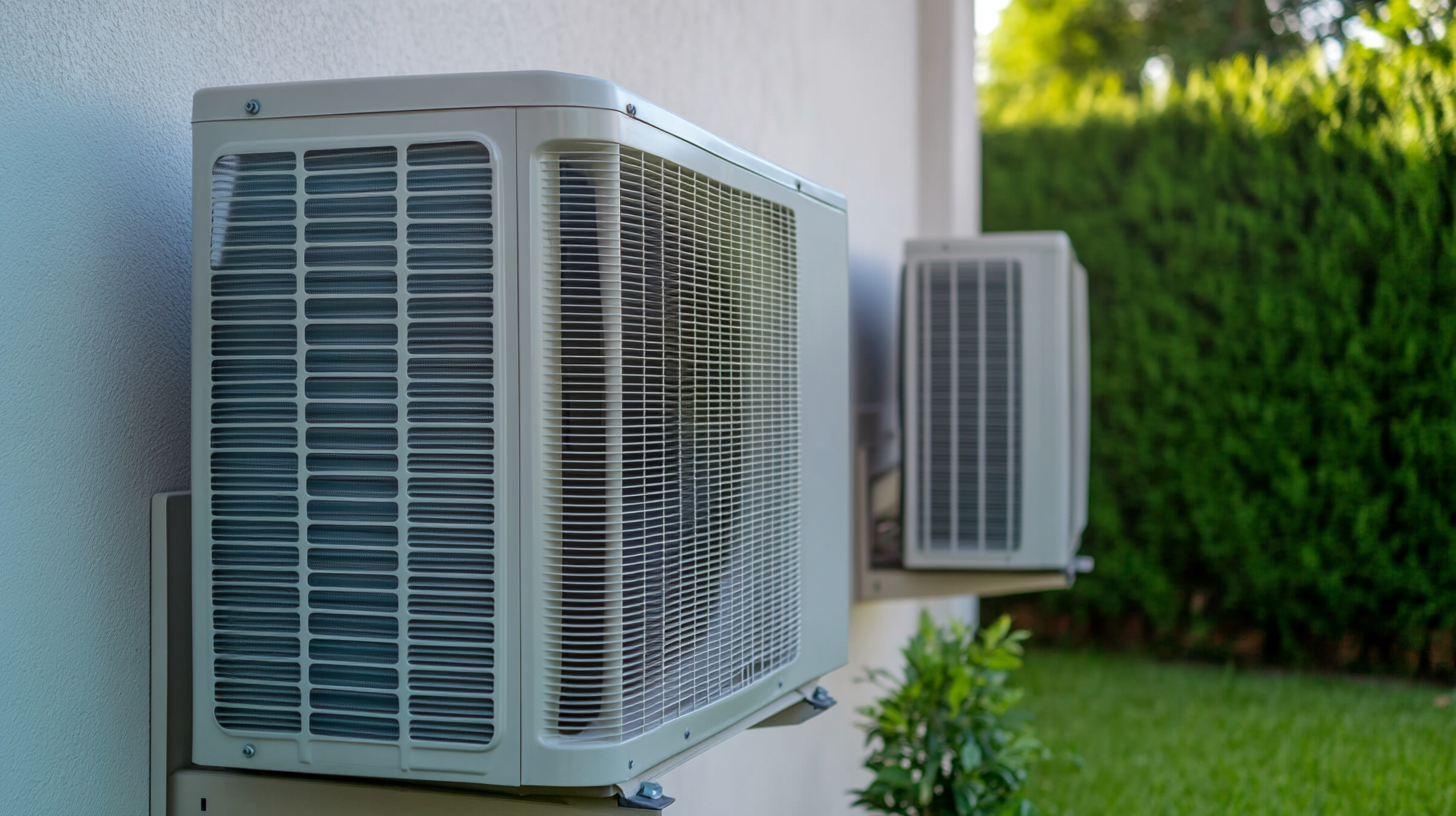Understanding the Best Heat Pump Unit: A Comprehensive Guide for Homeowners
 In recent years, the adoption of the Heat Pump Unit has surged among homeowners seeking energy-efficient heating and cooling solutions. According to the U.S. Department of Energy, heat pumps can reduce energy consumption by up to 50% when compared to traditional heating systems, making them a compelling choice for environmentally conscious consumers. With advancements in technology, modern heat pump units are capable of providing consistent comfort in a variety of climates, functioning effectively even in sub-zero temperatures. This comprehensive guide aims to illuminate the multifaceted benefits of heat pump units, exploring their efficiency, cost savings, and eco-friendly attributes. As homeowners increasingly prioritize sustainability, understanding the advantages of integrating a heat pump unit into their living spaces has never been more crucial.
In recent years, the adoption of the Heat Pump Unit has surged among homeowners seeking energy-efficient heating and cooling solutions. According to the U.S. Department of Energy, heat pumps can reduce energy consumption by up to 50% when compared to traditional heating systems, making them a compelling choice for environmentally conscious consumers. With advancements in technology, modern heat pump units are capable of providing consistent comfort in a variety of climates, functioning effectively even in sub-zero temperatures. This comprehensive guide aims to illuminate the multifaceted benefits of heat pump units, exploring their efficiency, cost savings, and eco-friendly attributes. As homeowners increasingly prioritize sustainability, understanding the advantages of integrating a heat pump unit into their living spaces has never been more crucial.
Types of Heat Pump Systems: An Overview of Options for Homeowners
When considering a heat pump system for your home, it’s essential to understand the various types available, each with its unique benefits. The most common types include air-source, ground-source (or geothermal), and water-source heat pumps. Air-source heat pumps are versatile and can efficiently heat and cool your home by transferring heat between the indoors and the outdoor air. Ground-source heat pumps, on the other hand, utilize the earth’s stable temperature, providing exceptional efficiency and comfort, especially in extreme climates. Water-source pumps, suitable for homes near water bodies, use the thermal energy of water to regulate indoor temperatures.
**Tips:** When choosing a heat pump, consider the climate in your area—air-source models perform best in moderate climates, while ground-source systems are ideal for regions with extreme temperatures. Additionally, make sure to calculate the size of the unit needed for your space; oversized or undersized systems can lead to increased energy costs and reduced comfort. Don’t forget to check for any available tax credits or rebates that can save you money on your installation.
Another important factor is seasonal efficiency ratings. Look for units with high HSPF (Heating Seasonal Performance Factor) and SEER (Seasonal Energy Efficiency Ratio) ratings, which signify better energy efficiency. Consulting with a professional can help ensure you select a system that fits your home’s needs and is installed correctly for optimal performance.
Key Factors to Consider When Selecting a Heat Pump for Your Home
When selecting a heat pump for your home, several key factors must be taken into account to ensure optimal performance and efficiency. The global heat pump market, valued at $22.4 billion in 2024, is projected to reach a whopping $36.3 billion by 2032. This rapid growth highlights the increasing significance of heat pumps in modern heating and cooling systems.
One critical aspect to consider is the type of heat pump suitable for your climate. Air-source heat pumps are ideal for moderate climates, while ground-source units offer greater efficiency in colder regions. Additionally, assessing your home’s insulation and size can help determine the right capacity for your heat pump, ensuring consistent and reliable climate control.
Tips: When evaluating heat pumps, look for models with high energy efficiency ratings (EER and SEER) as they can lead to substantial savings in energy costs. Regular maintenance can also enhance performance and longevity; therefore, consider establishing a maintenance schedule with a qualified technician. Lastly, don’t overlook available incentives; many regions offer rebates or tax credits for energy-efficient installations, potentially lowering your overall investment.
Understanding Efficiency Ratings: SEER and HSPF Explained
When selecting a heat pump unit for your home, understanding efficiency ratings is crucial. The Seasonal Energy Efficiency Ratio (SEER) and Heating Season Performance Factor (HSPF) are two key metrics that help homeowners gauge the performance of these systems. SEER measures the cooling efficiency of a heat pump over a typical cooling season, representing the amount of cooling provided per unit of energy consumed. A higher SEER rating indicates better efficiency, which can lead to significant energy savings and reduced utility bills in warmer months.
On the other hand, the HSPF evaluates the heating efficiency of a heat pump during the heating season. It represents the total heating output in BTUs divided by the total energy consumed in watt-hours. Similar to SEER, a higher HSPF rating signifies a more energy-efficient system, which is particularly important for homeowners residing in colder climates. By focusing on these efficiency ratings, homeowners can make more informed decisions when it comes to selecting the best heat pump unit that meets their comfort needs while optimizing energy consumption.
Understanding Efficiency Ratings: SEER and HSPF Explained
The Role of Heat Pumps in Energy Conservation and Cost Savings
Heat pumps are increasingly becoming a cornerstone for homeowners looking to enhance energy efficiency and reduce utility expenses. By transferring heat instead of generating it, heat pumps can efficiently warm or cool an entire home while utilizing significantly less energy compared to traditional heating systems. This technology captures ambient heat from the air or ground, converting it into usable energy. Consequently, homeowners can enjoy a more sustainable household with lower energy costs, making heat pumps an intelligent choice for environmentally-conscious consumers.
In addition to energy conservation, heat pumps offer substantial savings on utility bills. They can operate at efficiencies over 300%, meaning for every unit of energy consumed, they deliver multiple units of heat or cooling. Homeowners can experience reduced energy bills in both winter and summer months, as heat pumps provide dual functionality. Furthermore, many regions offer incentives or rebates for installing energy-efficient systems like heat pumps, further enhancing the cost-saving benefits. By investing in a heat pump unit, homeowners not only improve their comfort but also contribute positively to the environment while enjoying financial advantages.
Understanding the Best Heat Pump Unit: A Comprehensive Guide for Homeowners
| Heat Pump Type |
Energy Efficiency Rating (SEER/HSPF) |
Average Cost ($) |
Estimated Annual Savings ($) |
Lifespan (Years) |
| Air Source Heat Pump |
15 SEER / 8 HSPF |
4,500 |
600 |
15 |
| Geothermal Heat Pump |
20 SEER / 10 HSPF |
7,500 |
1,200 |
25 |
| Ductless Mini-Split Heat Pump |
17 SEER / 9 HSPF |
3,500 |
400 |
20 |
| Hybrid Heat Pump |
18 SEER / 9 HSPF |
5,000 |
800 |
20 |
Comparative Analysis: Air Source vs. Ground Source Heat Pumps
When comparing air source heat pumps (ASHP) and ground source heat pumps (GSHP), it's essential to evaluate their efficiencies and applications in residential and commercial settings. ASHPs utilize ambient air to transfer heat, making them easier and more cost-effective to install, especially in milder climates. However, they can be less efficient in colder temperatures, which can limit their performance during harsh winters. Reports suggest that ASHP systems can achieve efficiencies of up to 4.0, which translates to a coefficient of performance (COP) that demonstrates their capacity for energy savings.
In contrast, GSHPs leverage the stable temperatures found in the ground, resulting in a more consistent performance year-round. A study indicates that GSHPs can achieve COP values of 4.5 or higher, even in extreme weather conditions. The initial investment is typically higher for GSHPs due to the complexity and installation of underground loops or boreholes. Nonetheless, the long-term operational savings and lower environmental impact—estimated to reduce energy costs in commercial buildings by approximately 17%—make them an attractive option for homeowners looking for sustainable energy solutions. Ultimately, the choice between ASHP and GSHP depends on climate, installation budget, and long-term energy efficiency goals.




 In recent years, the adoption of the
In recent years, the adoption of the 
